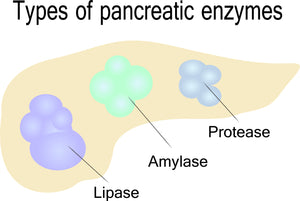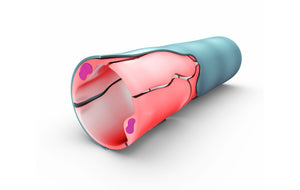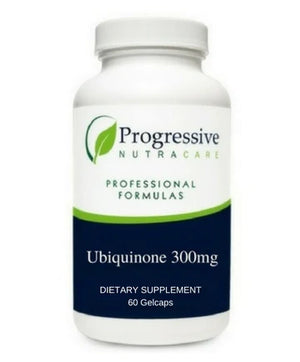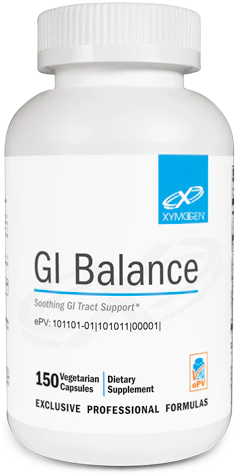Going Gluten Free? A Quick Guide to Get Started-Part 2

How To Eat Gluten-Free with Celiac Disease
Thanks for coming back to the second part of our two-part series on gluten! This is a massive topic, and we really want to help everybody understand how to eat when they're trying to cut out gluten.
In part one, we gave you the basics. Part one’s perfect for people who are cutting out gluten to help improve their health, but they don’t have an overall medical need to eliminate everything. Part one's for people who are trying a gluten-free diet to lose weight, get their diabetes under control, relieve some pain and inflammation, and overall feel more energy.
Part 2 has a more serious aspect. This part is for people who are genuinely allergic to gluten. This is for people that cutting out gluten is literally life-or-death.
This is an excellent section for people who are severely gluten-intolerant, where they feel awful when they eat gluten, but it’s not quite an allergy. This is also great for people who are testing to see if gluten is their problem by doing usher gluten detox. For these types of people, cutting out gluten entirely for three days, one week, or one month can help them understand if they are genuinely reacting to gluten or not.
So, if you're one of the people in this more severe category, read on. And, if you are looking for more information on better reasons why you should cut out gluten, read on! Some of the stuff might scare you, but we hope it makes you healthier overall.
Gluten – What Is It And Why Is It Hurting You?
Gluten is a classification of a couple of different proteins; some called prolamins and glutelins. The word gluten is derived from Latin gluten, which means glue. This protein occurs in the endosperm of various cereal grains, primarily wheat species, barley, rye, and some oats.
Throughout history, humans have hybridized and selectively bred various wheat cultivars to have a higher gluten content. Hybridization and selective breeding are different than GMO. In today’s society, GMOs introduce proteins and sections of DNA from species other than what is natural.
Some of the natural health fields believe that the introduction of GMOs into a person’s diet can increase the susceptibility to various allergies and intolerances. Specifically, some believe that the excessive pesticide use on GMO wheat is responsible for encouraging glucose intolerance. Some believe that the genetic modifications are disrupting the probiotic flora naturally occurring in our guts. This disruption leads to further problems (read more here).
Gluten is what gives bread that fluffy, chewy texture. Because the glutens glue themselves together so rapidly and thoroughly, manufacturers widely use it in the process food industry as a thickener. It is in vegetarian foods, beer, condiments, ice cream, cosmetics, and most processed foods.
Gluten connects to many different types of diseases including celiac disease, non-celiac gluten sensitivity, wheat allergy, gluten ataxia, dermatitis herpetiformis, inflammation, irritable bowel disease, GERD, headaches, fatigue, autoimmune issues, neurological conditions, psychiatric disorders, some blood diseases, diabetes, heart disease, depression, fatigue disorders and many more.
What Happens to You When You Eat Gluten
Our body has a challenging time breaking down gluten. Commonly, when long strands of protein enter our digestive system, various enzymes break off groups of amino acids to be used in the rest of our body.
However, gluten resists this breaking down. When gluten does get broken down, it divides into the two primary amino acids: proline and glutamine. Because neither of these is an essential amino acid, the body may or may not absorb them. Additionally, these amino acids prevent other proteins from being completely broken down in the digestive system. This accounts for some of the gastrointestinal upset that happens when people eat bread and meat together.
Because proteins do not efficiently break down when gluten is present, it may result in a toxic buildup of oligopeptides that further disrupt the flora of our gut.
In some cases, as the gluten-rich food breaks down, it can be broken down into alpha-gliadin that can trigger a T-cell response in our immune system. This causes an aggressive immune response in the gut that can destroy the mucous membranes and cause severe pain.

Another aspect of our gut, the gut-associated lymphoid tissue, reacts to another byproduct of gluten digestion: gliadin. In people who have no sensitivity to gluten, this byproduct continues with digestion. However, in people with gluten sensitivity or celiac disease, the gut produces antibodies to attack the gliadin. And people with celiac disease, the antibodies attack everything.
It gets worse than that, believe it or not. The enzyme tissue transglutaminase (tTG) helps break down gluten and contributes to holding the microvilli in our gut together. The microvilli absorb nutrients and provide more surface area for the probiotics to live. Unfortunately, the immune response caused by gluten destroys the tTG and the microvilli atrophy, which decreases your ability to absorb nutrients. This can lead to leaky gut, IBS, constipation, diarrhea, weight loss, anemia, and many other diseases.
Once your immune system is engaged to fight the gluten, it could react and attack other organs and systems. This is the major issue with celiac disease. However, some researchers are linking gluten sensitivity to things such as rheumatoid arthritis and other autoimmune conditions.
This can lead to many other issues in the body. We know that once you affect the way the body absorbs nutrients and the gut flora, it can lead to various other problems. This includes things like depression, fatigue, achiness and inflammation, blood problems, and many more. Although gluten does not directly impact your joints or brain, the changes it’s working in your digestive system are causing these problems.
What Foods To Avoid When You Have A Gluten Allergy
Having this level of celiac disease or gluten sensitivity requires you to be diligent in the type of foods you eat. You will have to read labels on your food and get used to preparing treats and meals yourself. When you go out to restaurants, you will have to be diligent in requesting substitutions and informing the server you are allergic.
If you do choose processed foods or go out for a meal, you need to make sure you avoid anything with the following ingredients:
- Wheat
- Rye
- Barley
- Oats
- Gluten additives
You should also pay attention to labels on processed foods that warned that the food product came from a facility where wheat also gets processed.

You have the choice of choosing only whole-food ingredients or paying attention to labels and ingredients. It’s challenging at first, as it takes time to read everything and ask the right questions. But, as time goes on, it becomes easier and faster. Faster than you’ll believe, reading labels becomes second nature and you’ll know within moments if a food is right for you or not.
It all comes down to seeking out the key terms: wheat, rye, barley, oats, and gluten.
Supplements You Probably Should Be Taking Now that You Are Healing from Gluten
Cutting out gluten, especially from bread and processed foods, is going to go a long way to helping your body heal. Fortunately, the lining of your digestive system replaces itself approximately every 7 to 10 days. It may take a little while to get back up to full health, depending on the level of damage, but it is achievable.
Most people experienced significant improvements in their health and wellness within the first week of altogether eschewing gluten. When you stop the damage, the body takes care of itself.
But you still might be in a little bit of trouble from the inability to get your nutrients adequately. This is how taking supplements can help get your levels back up into a healthy range. Then, you can significantly back off on the number of supplements you take as you replace that with healthy foods.
There are two forms of supplements that you should take. The first has to do with digestive enzymes that are breaking down your food. Because your digestive system is damaged, you want to give yourself a little boost digesting food. That way you can absorb the nutrients and all of their co-factors from your food. This is a much healthier way to get your vitamins and minerals.
Second is individual supplements designed to fill the gaps. This is something you should work with a regular doctor for. Here at Progressive Medical Center, our doctors help you discover your individual deficiencies and help design a plan that will quickly address them.
Most commonly, we see people having deficiencies in the top antioxidants and a few minerals. Before we tell you about the antioxidants and minerals, we want to make sure you’re choosing a high-quality supplement. Typically, you will pay a little bit more for a supplement that is free of fillers, binders, and unwanted ingredients. Better supplements also pay for independent testing to show they work well.
Starting with a vitamin C supplement, you can help multiple facets of your body with a single supplement. It benefits the immune system, brain, digestive system, and vitamin C also supports healthy probiotic growth in your digestive system.
Magnesium and calcium are two primary nutrients that most women lack. You should take the supplement separately, as they compete for absorption. If you take them four hours apart, you get the best absorption rate. Also, magnesium is absorbed much better when you take it with the vitamin C supplement. Magnesium and calcium help improve the absorption rate of many other nutrients, maintain the transport system that moves the nutrients from your digestive system into your blood, and help regulate many functions in the brain, heart, and helps maintain bone health.
We also recommended people use digestive enzymes to help break down their food. When your digestive system is damaged, it's difficult to digest food and get the nutrients out of it properly. So, we have to help restore your gut to its optimal capacity. For that, we use some digestive supplements.
We're not going to go over all of the different digestive supplements here. You can read more about it in our article about specific digestive supplements, and you could take a look at all of the various enzymes that we include in our GlutenFlam supplement often recommended for people who come to us with digestive issues.
Here are some of the basics: The enzyme blend of peptidase, amylase, lactase, and lipase are four of the top enzymes used to digest most food. They break down proteins, sugar, lactose, and fats.
In many healthy fruits and vegetables, the nutrients get wrapped up in many of the proteins and sugars and these have to be partially digested before we can get to the nutrients. That’s what enzymes do.
Cellulose is also an important enzyme, especially if you're eating a higher proportion of vegetables. This enzyme breaks down the cellulose within fruits and vegetables and helps release the nutrients faster.
We often recommend various herbs and foods that work for your gut. Aloe vera is very soothing to the digestive system and is shown in multiple studies to increase healing within the gut. Other phytonutrients such as quercetin, bromelain, and lycopene are found naturally in various fruits and vegetables. Bromelain is in fresh pineapples. Quercetin is in red onions, apples, and broccoli. Lycopene is in red cabbage, watermelon, and papaya, and all of these foods have been found in studies to help increase healing within the digestive system.
We also recommend low doses of curcumin, in some cases. Curcumin has a powerful antioxidant capacity and is well known to help reduce inflammation. It's also shown in some studies to directly help heal problems caused by damage to the gut including gluten sensitivity, IBS, and reflux.
We recommend the supplements because we know they help people, but they are not necessary. As long as you focus on a healthy diet and removing gluten from your diet, your body can heal. The supplements make things a lot easier and faster.
How To Request Gluten-Free at Restaurants Without Being That Person
Having this level of sensitivity and allergic reaction to gluten justifies you informing the servers of your condition. We recommend calling ahead if you have this option to let them know you will be dining at their establishment. This way, you can make sure they can accommodate your needs and you can have a stress-free eating experience.
Because many people use the term allergic when they really aren't, you may experience backlash or dismissal. Being polite, but firm about your specific requirements may be necessary. We do not recommend getting upset, because it puts you in the same category as that person who abused the term allergic to begin with.
In most cases, quiet and polite requests get welcomed fairly and smoothly. Working with the restaurant and requesting are substitutions that helps everyone who has this type of problem. Fortunately, many restaurants are advertising gluten-free dishes right on the menu.
You do have the option to eat gluten-free without having to resort to rice and salads all the time! And, if you frequent a restaurant, you can get to know the chef and servers and they can accommodate you without even having to ask.
Final words
Removing gluten totally from your diet can be a challenge. But, if you're diligent, you can help your body heal and live a full life. Once you get used to the changes, even if you try commercially processed foods, you'll find them underwhelming and highly unsatisfying. Your body will enjoy being gluten-free and pain-free eating healthy foods!
- Nutracare Team







Comments 0